The post Gardens, Plants, and Pets: What’s Safe and What’s Not This Spring appeared first on Adobe Animal Hospital & Laser Surgery Center.
]]>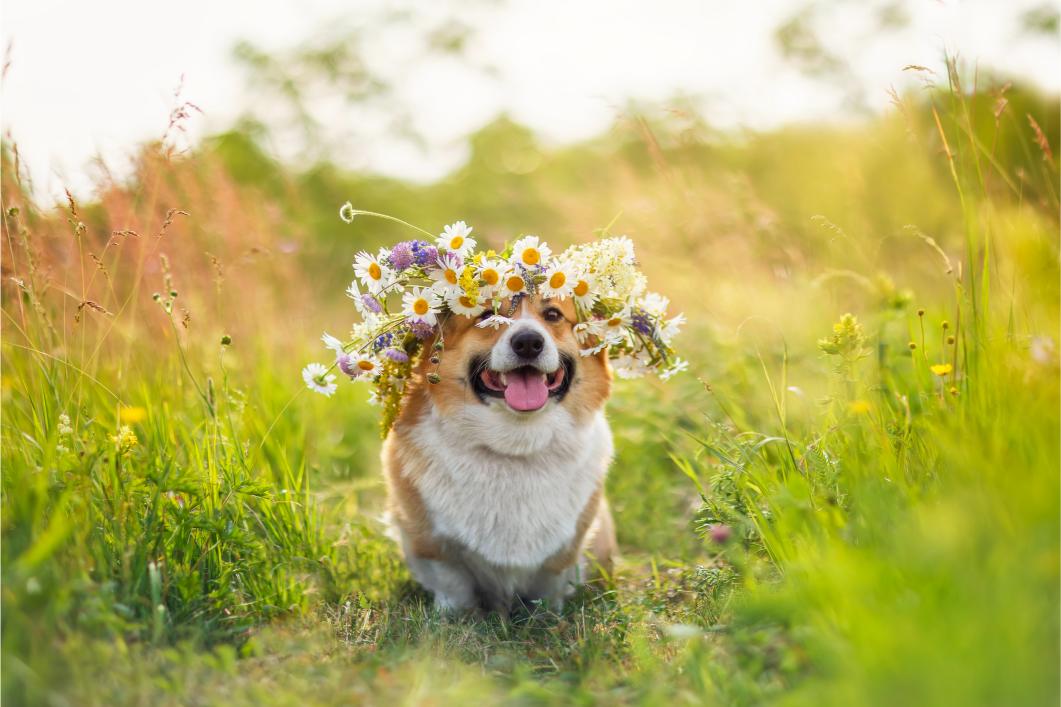
Spring is finally here, and that means warmer weather and more opportunities to explore the outdoors with our pets. But as much as we adore the season, it also comes with a few risks for our furry friends.
From seasonal allergies in pets to flea and tick prevention, keeping our pets safe during this time requires a little extra attention. Here’s what the team at Adobe Animal Hospital & Laser Surgery Center wants you to know about spring pet care.
3 Tips for Springtime Pet Health
Watch Out for Toxic Plants
Spring gardens are beautiful, but not all the plants that decorate our yards and gardens are safe for pets. Many popular flowers and shrubs—like tulips, daffodils, lilies, and azaleas—are toxic to pets if ingested.
If your pet loves to explore the yard (or chew on things he shouldn’t), consider planting more pet-safe plants in lieu of the dangerous ones.
Marigolds, sunflowers, and herbs like rosemary and basil are always great picks! If you’re not sure what’s dangerous and what isn’t, check out the ASPCA’s searchable database of toxic and nontoxic plants.
Beware of Fleas, Ticks, and Other Unpleasant Guests
With warmer weather comes an increase in fleas, mosquitos, and ticks, and trust us, you don’t want these pests hitching a ride on your pet.
It’s not just because they’re annoying, either. Pests like these can spread all sorts of diseases, including Lyme disease, heartworm, and tapeworm.
Because of this, flea and tick prevention is an absolute must in your springtime pet health routine. If it’s been a while since you last had a flea collar or heartworm medication for your pet, call your vet as soon as possible.
Your furry friend may need testing and treatment before she can go on another preventive medication.
Seasonal Allergies in Pets—Yes, They’re a Thing!
Is your dog or cat itching more than usual? Do they spend a considerable amount of time sneezing or licking their paws?
If so, they might have seasonal allergies.
Just like us, pets can be sensitive to pollen, mold, and grass—all of which run rampant in the springtime. Regularly bathe your pet, especially after any outdoor adventures that involve bounding through fields of blooming grasses and flowers. You can also discuss allergy treatment with your veterinarian to help your pet feel less miserable.
Springtime Safety Means Springtime Fun
With these spring tips for healthy pets, you can feel confident that:
- Your yard is free of toxic plants
- Your pet is guarded against harmful parasites
- You’re in tune with your pet’s seasonal discomforts
And all of these points make for an excellent and safe spring with your furry family members. If your pet needs preventives for heartworm, fleas, and ticks, a seasonal allergy checkup, or more tips for outdoor safety for pets, the caring team at Adobe Animal Hospital & Laser Surgery Center can help. Call us at (530) 673-4744 to schedule an appointment!
The post Gardens, Plants, and Pets: What’s Safe and What’s Not This Spring appeared first on Adobe Animal Hospital & Laser Surgery Center.
]]>The post Protect Your Pets: Top Household Hazards to Avoid During National Poison Prevention Week appeared first on Adobe Animal Hospital & Laser Surgery Center.
]]>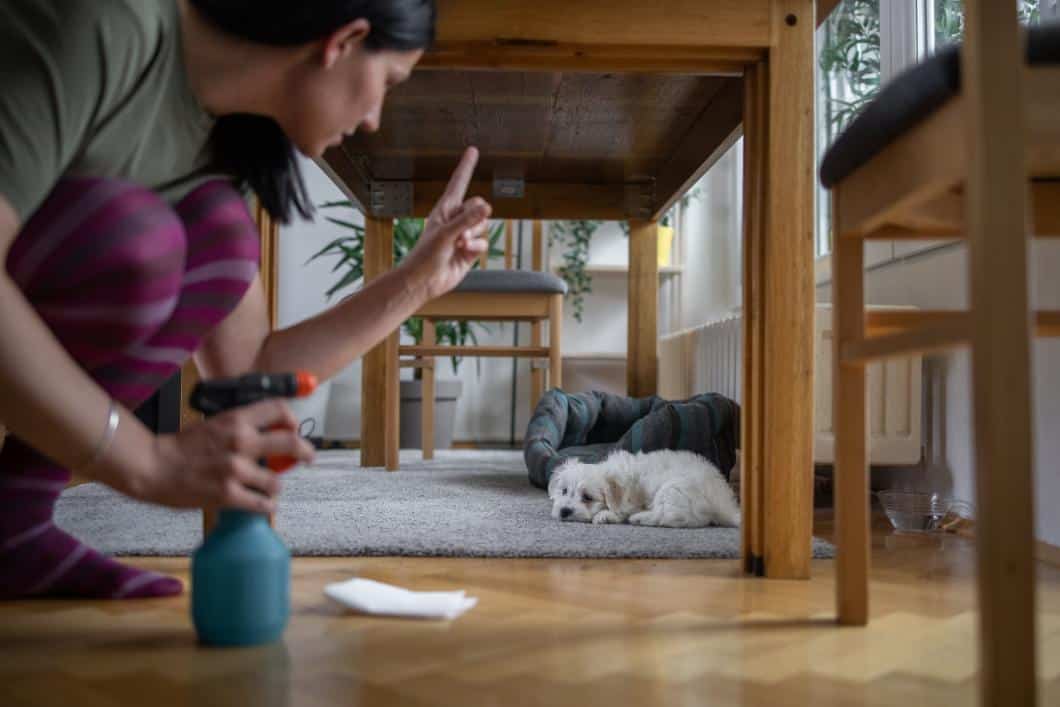
March 16-22 is National Poison Prevention Week (March 16-22), which means it’s time to start thinking about any potential hazards in your home. This guide will help you figure out the most poisonous hazards to pets that exist in your house.
Household Toxins
Most pet owners strive to establish and maintain a healthy, safe home environment for their pets. Of the many potentially toxic items kept at home, the following are routinely responsible for making pets very sick:
- Over-the-counter human medications, such as NSAIDs (ibuprofen or naproxen), cold/flu medications, and herbal supplements
- Prescription medication, including antidepressants, heart medications, birth control pills, and ADHD medication
- Veterinary medications, including parasite prevention medication, can taste good to pets and they may seek them out only to eat far more than prescribed.
- Recreational drugs, such as marijuana, can be harmful to pet well-being. Be sure to store all gummies, vapes, and loose products in a safe place.
Watch Out for Toxic Foods
Pets are curious, opportunistic, and as it happens, hungry most of the time. Be sure to keep the following foods out of the reach at all times:
- Chocolate
- Coffee and other caffeinated beverages
- Alcohol
- Grapes and raisins
- Onions
- Garlic
- Macadamia nuts
- Xylitol
- Raw yeast dough
The Garage, Yard and Garden Shed
Beautiful plants can have terrible health consequences for pets. Check out this guide to toxic plants for more information, and be sure to remove these plants from your property:
- Tulips
- Daffodils
- Azaleas
- Lilies
- Sago palms
Household hazards lurking in plain sight can include fertilizers, pesticides, insecticides, rodenticides, and more. Some yard and garden products contain blood or bone meal, ingredients sure to attract rodents and other pests. For safety, store these products in areas inaccessible to pets.
Antifreeze, or ethylene glycol, can have a sweet flavor that draws pets in but is highly dangerous. Clean up any leaks from under the car and store appropriately.
Safeguarding and Supervision
Symptoms of toxicity in pets vary and are largely dependent on the type of exposure.
- If something is consumed, symptoms can include vomiting, diarrhea, changes to heart rate, and overall agitation.
- On the other hand, the inhalation of dangerous fumes or chemicals can lead to loss of consciousness or respiratory distress.
- If a pet’s skin and coat is exposed to a toxic substance, they may show signs of pain, itching, irritation and inflammation.
Changes to their appearance or behavior may be very subtle at first, and symptoms may not even become obvious for many hours after exposure. By the time help is provided, damage may already be done.
National Poison Prevention Week
If you have further questions about the ways to promote your pet’s health and safety at home, please call us at (530) 673-4744.
The post Protect Your Pets: Top Household Hazards to Avoid During National Poison Prevention Week appeared first on Adobe Animal Hospital & Laser Surgery Center.
]]>The post Show Your Pet Love: Heart Health Tips for Your Furry Friends appeared first on Adobe Animal Hospital & Laser Surgery Center.
]]>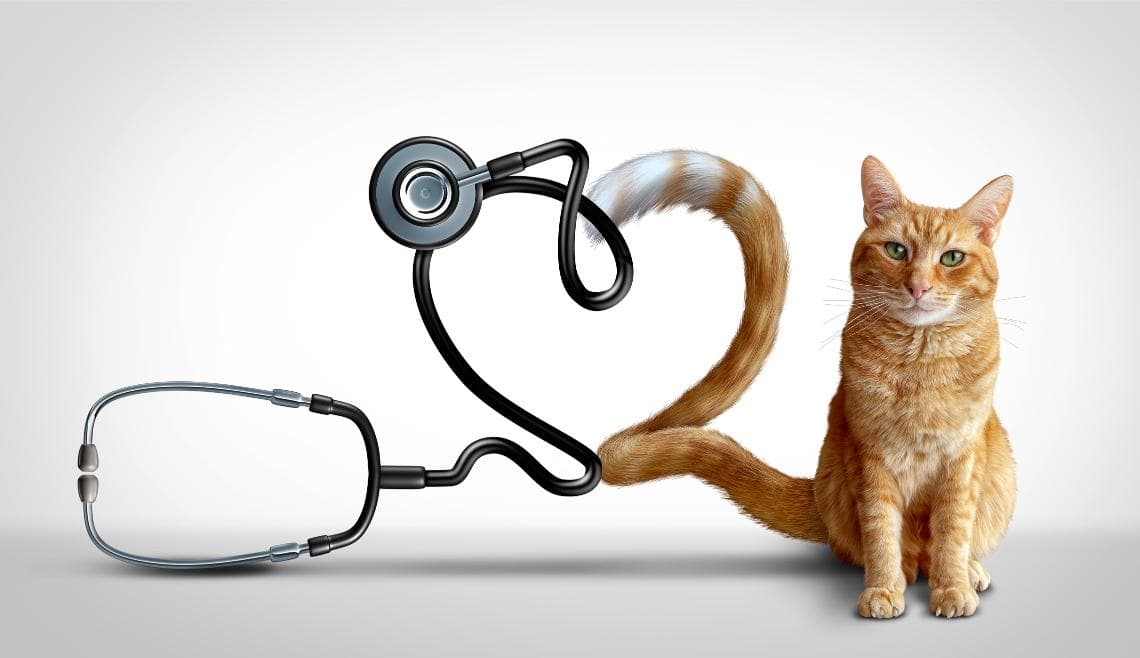
At Adobe Animal Hospital & Laser Surgery Center, we know that taking care of your pet’s heart is one of the greatest ways to show them love. Just like humans, pets can experience heart issues as they age, making heart health an essential focus for pet parents. From a heart-healthy diet to regular check-ups, these tips will help keep your pet’s heart beating strong and steady.
1. Feed Them a Heart-Healthy Diet
Good nutrition is a powerful way to support heart health in pets. A balanced diet provides the nutrients they need and helps prevent obesity—a significant risk factor for heart disease in pets.
- Choose high-quality pet food: Opt for brands with minimal fillers and a good balance of proteins, fats, and carbohydrates.
- Avoid excess salt: Like humans, too much salt can contribute to heart problems. Check labels and avoid feeding your pet salty human foods.
- Include heart-friendly ingredients: Foods rich in Omega-3 fatty acids, like fish oils, can help promote a healthy heart.
Making sure your pet’s diet supports their heart health can be one of the simplest and most effective ways to keep them healthy.
2. Schedule Regular Vet Check-Ups
Routine check-ups are essential for identifying heart disease in pets early. Your vet can spot symptoms and discuss preventive measures tailored to your pet’s needs.
- Yearly wellness exams: Make annual visits to the vet a priority, especially for senior pets.
- Heart-specific screenings: Ask your vet about screenings such as echocardiograms or blood pressure checks, particularly if your pet is at risk for heart disease.
Regular check-ups can catch early signs of heart disease, ensuring your furry friend gets the care they need.
3. Keep Your Pet Active
Exercise is excellent for keeping your pet’s heart strong. Regular physical activity helps manage weight, reduces stress, and strengthens cardiovascular function.
- Daily walks: Dogs benefit from walks, which keep their bodies and hearts fit.
- Play sessions: Indoor cats love chasing toys, which keeps their hearts healthy.
- Interactive games: Puzzle toys and games encourage movement, which is beneficial for pets of all ages.
Keeping your pet active contributes to a healthy heart, whether a brisk walk or a playful pounce.
4. Watch for Warning Signs of Heart Disease
Knowing the signs of heart disease in pets is essential for early intervention. Here’s what to keep an eye on:
- Coughing: Frequent coughing, especially after exercise, could indicate heart issues.
- Difficulty breathing: Labored or rapid breathing may suggest heart disease.
- Fatigue: Pets with heart issues may tire easily or seem less energetic.
- Fainting or collapsing: Contact your vet immediately if your pet faints or collapses.
By recognizing these symptoms, you can seek help early and potentially improve your pet’s prognosis.
5. Maintain a Healthy Weight
Carrying extra pounds puts added strain on your pet’s heart, and increases the risk of heart disease. Helping your pet maintain a healthy weight is one of the best things you can do for their heart.
- Monitor portion sizes: Follow feeding guidelines and avoid overfeeding.
- Limit treats: Treats are okay in moderation, but overindulgence can lead to weight gain.
- Encourage playtime: Regular play is a fun way to help your pet stay trim.
Keeping your pet at a healthy weight supports heart health and helps them live a longer, more active life.
6. Consider Supplements for Heart Health
For some pets, supplements can offer additional support for a healthy heart. Always check with your vet before adding supplements to your pet’s routine.
- Omega-3 fatty acids: These support cardiovascular health and reduce inflammation.
- Taurine: An amino acid essential for heart function, especially in cats.
- Coenzyme Q10: This antioxidant is beneficial for heart health in some pets.
Supplements aren’t necessary for every pet, but they can provide additional heart health benefits under your vet’s guidance.
7. Provide a Low-Stress Environment
Stress affects heart health, so creating a calm, comforting environment for your pet can positively impact their well-being.
- Provide a cozy space: Make sure they have a comfortable, quiet area to relax.
- Engage in bonding time: Spend time each day engaging with your pet through petting or gentle play.
- Avoid loud noises: Minimize stressful noises, especially if your pet is sensitive to sounds.
A peaceful environment can help keep your pet’s heart healthy, promoting calmness and reducing strain on their cardiovascular system.
A Heartfelt Commitment to Your Pet’s Health
Keeping your pet’s heart healthy is one of the best ways to show them love, and Dr. Harry Sekhon and our team are here to support you every step of the way. If you have questions or want to schedule a wellness visit or heart health check-up for your furry friend, call us today—because a healthy heart means more happy moments together!
The post Show Your Pet Love: Heart Health Tips for Your Furry Friends appeared first on Adobe Animal Hospital & Laser Surgery Center.
]]>The post Understanding and Preventing Hypothermia in Pets During Winter appeared first on Adobe Animal Hospital & Laser Surgery Center.
]]>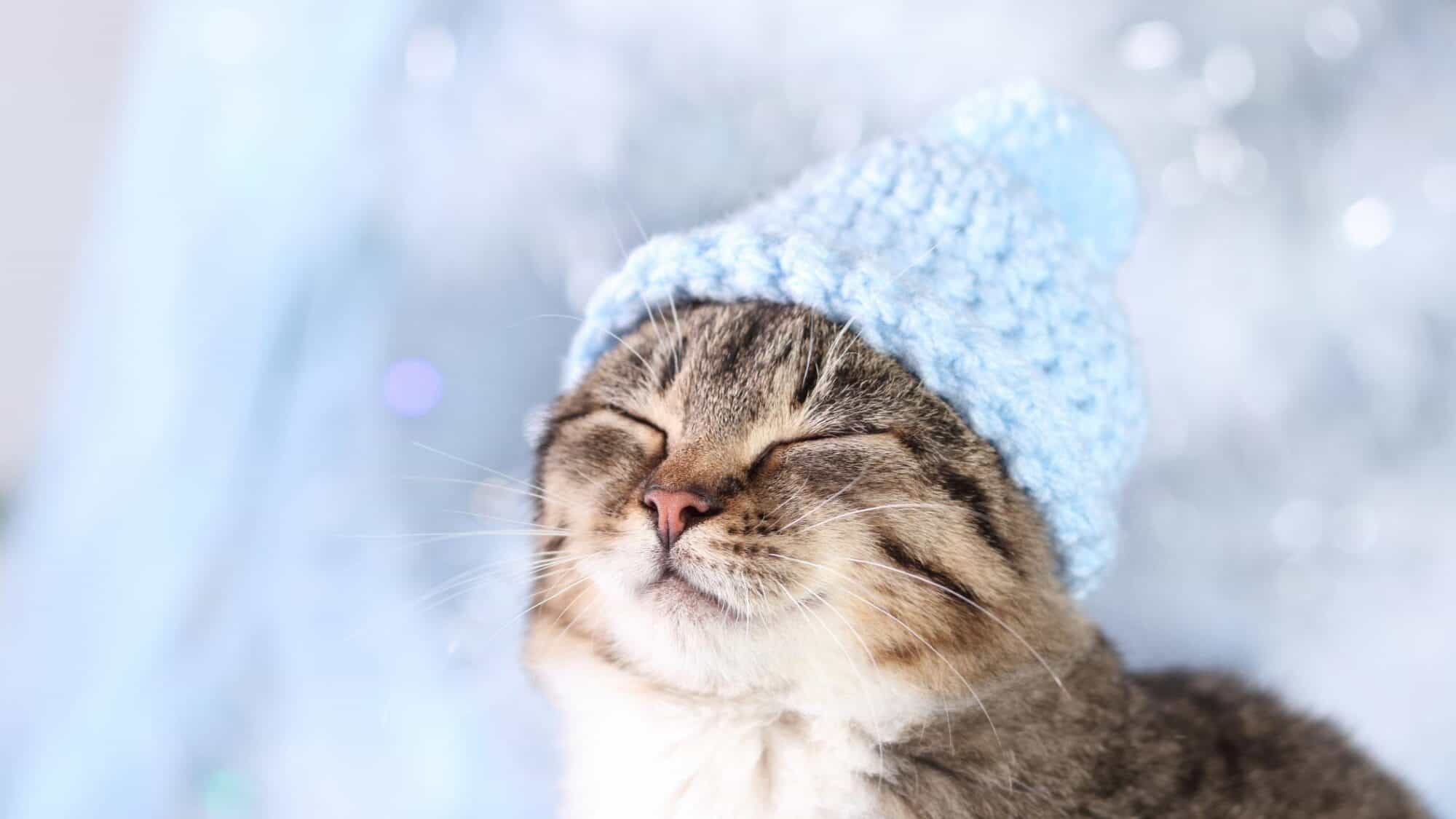
As temperatures drop, it’s easy to assume our furry friends will be all right in the cold. They wear furry coats all year long, after all. What more could they need? But pups and kitties get cold, just like we humans do. Whether you live in central California (like we do!) or up north in Alaska—or somewhere in between—winter pet safety is important.
And when it comes to winter weather, hypothermia is a big threat. In this blog post, the team at Adobe Animal Hospital & Laser Surgery Center will offer tips for preventing pet hypothermia.
Cold Weather Risks for Pets: A Spotlight on Hypothermia
Hypothermia happens when a pet’s body temperature drops way below its normal range. This occurs after a pet is exposed to cold temperatures for too long, but other factors come into play, too. Cold, rainy weather can also drive hypothermia. If your pet spends time outside in the rain, she could lose her body heat more quickly than she would in dry weather.
Enter hypothermia.
Plus, if a cat or dog has a thin coat, is young or old, or has an underlying health issue that makes it hard to regulate body temperature, they’re at a higher risk.
And then there’s wind, humidity levels, and other potential contributing factors to watch out for.
So what happens if your pet gets hypothermia and his or her body heat drops too low?
Nothing good. When your pet’s body can’t maintain its heat, vital organs begin slowing down. If not treated right away, this can make your pet incredibly sick, and it can even be deadly.
As much as possible, keep your pet warm and dry throughout the winter. If you go outside to play in the snow or rain, don’t stay out too long—and dry your pet off thoroughly when you come inside. Make sure your pet has a safe, warm place indoors to sleep and spend her days.
And finally, know the early signs of hypothermia in pets so you can prevent this dangerous condition.
Signs of Hypothermia in Pets
Knowing the signs of hypothermia in pets can make a life-saving difference. Here are some common symptoms to watch for when you’re out enjoying the winter weather:
- Shivering: This is usually the first sign that your pet is too cold.
- Weakness or lethargy: Your pet may seem unusually tired or lacking in her usual boundless energy.
- Slowed breathing and heart rate: Hypothermia slows your pet’s breathing and heartbeat, which can be dangerous. Watch for strange breathing patterns when you’re out and about in the cold.
- Decreased alertness: Your pet may seem confused, disoriented, or unresponsive.
- Pale or blue gums and skin: Low body temperature can lead to poor circulation, which leads your pet’s gums and skin to lose their usual hearty color.
The best line of defense against hypothermia is to bring your pet inside and wrap her in warm blankets the minute you see her shivering.
If you notice weakness, lethargy, slowed breathing, or any of the other signs of hypothermia, call your veterinarian as soon as possible.
The caring veterinary team at Adobe Animal Hospital and Laser Surgery is here to help guide your pet through any wintry woes. Call us today at 530-673-4744 if you’re concerned about your pet’s reaction to our chillier winter weather!
The post Understanding and Preventing Hypothermia in Pets During Winter appeared first on Adobe Animal Hospital & Laser Surgery Center.
]]>The post Preparing Your Pet for a New Year’s Celebration: Safety Tips and Stress Management appeared first on Adobe Animal Hospital & Laser Surgery Center.
]]>
Adobe Animal Hospital & Laser Surgery Center hopes that you and your pets are able to ring in 2025 right—safe and healthy! As you prepare to welcome the new year, please consider New Year’s pet safety pointers to help everyone celebrate at their best:
New Year’s Pet Safety
There are plenty of New Year’s pet hazards that can make things less-than-safe for dogs and cats. When preparing to celebrate, take the time to think about what things might pose a danger to your pet.
When it comes to New Year’s pet safety, be wary of:
- Feeding potentially toxic foods, especially at chaotic celebrations
- Hazardous decor—like candles, wax warmers, and liquid potpourri
- Decorations, like confetti, that could pose a choking hazard
- Stressful situations with a lot of noise and/or strange people
- Don’t force your pet to be a party animal; all pets need a safe, quiet place to relax during gatherings
- Scary fireworks that can be loud and lead to stress and anxiety
- Unsecured trash items
- Hazardous items in the personal belongings of houseguests
- Open doors that could pose an escape hazard
New Year’s Eve Pet Tips
To keep pets safe during New Year’s celebrations, it’s important to have a plan. Our practice recommends being prepared by:
- Creating a secure environment — Noise and commotion can be very stressful for many pets. Create a calming corner by providing a familiar, comfortable crate or bed in a dimly-lit area. Use white noise and pheromones to create a soothing space to help in keeping pets calm during celebrations.
- Asking about medications — If you think fireworks and jubilation are going to be too much for your four-legged family member, contact us to discuss options for mild anti-anxiety options.
- Updating identification — Scared animals and people coming and going can create a perfect environment for a pet to slip out of a door. Be sure that your pet’s identification tag and/or microchip have up-to-date information.
- Looking at things like a pet — Take some time to look at things from a pet’s point of view. That unattended dish of chocolates? A purse on the ground full of sugar-free gum and prescription medications? Be sure to make some adjustments to keep your pet safe.
With some planning and attention to detail, both the pets and people in your life can celebrate safely. We are wishing you a Happy New Year from our family to yours!
The post Preparing Your Pet for a New Year’s Celebration: Safety Tips and Stress Management appeared first on Adobe Animal Hospital & Laser Surgery Center.
]]>The post Winter Pet Care Tips: Keeping Your Pets Safe and Warm appeared first on Adobe Animal Hospital & Laser Surgery Center.
]]>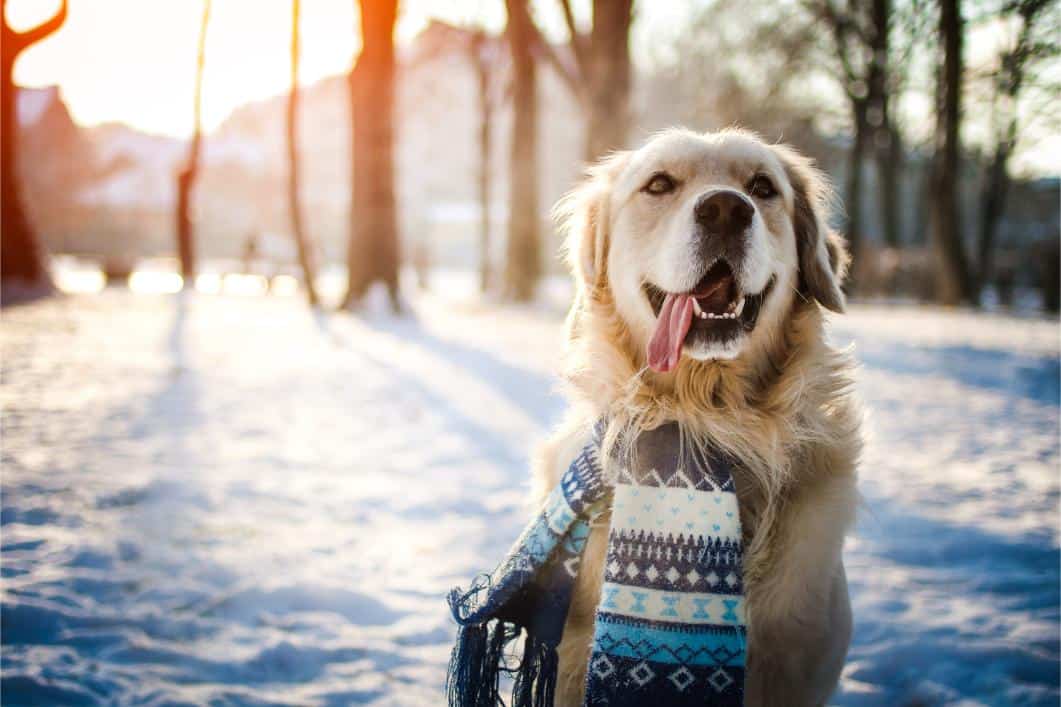
We Northern Californians get our fair share of cold weather, and for pets in Yuba City and the surrounding areas, winter pet care is an important topic. Adobe Animal Hospital & Laser Surgery Center has some great tips for pet winter wellness. We hope that by sharing our best advice, your animals will stay safe and cozy during this chilly part of the year.
Cold Weather Pet Safety Tips
With the changing seasons, there are some special considerations to help keep pets safe. Some hazards unique to the cold weather include:
- De-icing products — The salts in products like ice melt can cause contact irritation for pets, as well as gastrointestinal upset if ingested. More serious consequences like seizure or death are possible with high exposure. Use pet-safe versions when possible, and if exposure occurs, be sure to thoroughly rinse the product from your pets paws and fur.
- Antifreeze — Ethylene glycol is extremely toxic when ingested, even in small quantities. It is also very sweet, which makes it even more dangerous due to its palatability. Ingestion can lead to life-threatening kidney failure. Clean up leaks and spills promptly, and use pet-safe versions when possible.
- Rodenticides — When the weather cools, rodents of all kinds make their ways indoors. It is only natural to want to keep your home pest-free, but many rodenticides rely on being tasty and poisonous, and they don’t discriminate between a mouse and your dog or cat. Choose pet-safe options.
- Warming elements — Space heaters and the like make cozy places for pets to lie, but they also can lead to burns. Also remember to check for stray pets warming up under the hood of your car in cooler weather.
- Exposure — Pets can suffer from hypothermia and frostbite just like humans. Be sure to protect them from the elements.
Keeping Pets Warm in Winter
Pets spending time in cooler temperatures may need a little extra help staying warm. While animals accustomed to cold weather can generally handle chilly conditions, pets not used to being outdoors may require some additional precautions.
Letting your dog out briefly to potty is usually fine, but if your pet will be taking longer walks or spending extended time outdoors, it might be a good idea to invest in some winter gear—perhaps even as part of your holiday gift-giving!
Paws tend to be the first thing to get cold. There are various pet boots available that can help keep those toes toasty. Just remember to remove them when indoors to avoid irritation.
A well-fitted sweater or coat can also help keep your pet warm in winter weather, especially if they don’t have a thick coat. Be sure to check for any signs of rubbing, and ensure the garment fits snugly to prevent your pet from getting entangled.
Your Team for Winter Pet Care
Your pet’s veterinary wellness care doesn’t stop in the colder months, either. Our professional team is here to help your pet winter wellness efforts.
Don’t forget to continue administering heartworm and other parasite preventives. We are happy to help recommend the best product for your pet’s individual needs. Likewise, preventive vaccinations remain important (and maybe even more vital as pets board and travel through the holiday season).
You will also want to be sure that your pet has had a recent wellness checkup. Old, young, immunocompromised, or pets with systemic illnesses may be at increased risk for things like hypothermia. Our veterinary team can help make recommendations to keep your pet safer. Let us know if you need to make an appointment to bring your pet in.
Exercise remains important, but with shorter daylight hours be sure to always keep your pets on a leash to avoid accidents. If you walk or jog with your pets after dark, invest in reflective gear such as a collar or vest to ensure you and your pet are visible.
Even in Northern California, winter precautions are essential for keeping your pets safe and healthy. Winter pet care is important, and Adobe Animal Hospital is happy to help however we can.
The post Winter Pet Care Tips: Keeping Your Pets Safe and Warm appeared first on Adobe Animal Hospital & Laser Surgery Center.
]]>The post Preparing Your Pet for Halloween: Tips and Tricks appeared first on Adobe Animal Hospital & Laser Surgery Center.
]]>
Halloween can be a fun-filled time for people, but it can be downright spooky for pets! Costumes, loud noises, and colorful decorations can trigger pet anxiety on Halloween and pose Halloween hazards for pets.
Our team at Adobe Animal Hospital & Laser Surgery Center wants all of your furry little goblins to have a fright-free Halloween this year, so we’ve put together some of our favorite Halloween pet safety tips and tricks to keep your dogs and cats calm and safe.
Calming Pets During Halloween
Taming pet anxiety on Halloween doesn’t have to be tricky. Simple precautions can make the night less stressful for your pet:
- Distribute candy in your driveway or front yard to keep the constant doorbell ringing from startling your pet,.
- If you’re hosting a Halloween gathering, keep your pet in a quiet room with a bed, food, water, and a litter box (for cats).
- A new puzzle toy (or interactive toy) is helpful for calming pets during Halloween.
- Leave your pet safe at home when trick or treating.
- Take off your mask (and ask guests to do the same) before interacting with your dog or cat.
- Even a calm pet can be startled by strange costumes and sounds and bolt through an open door. Make sure your pet’s ID tag is current, and have your pet microchipped if you haven’t already.
Pet-Friendly Halloween Treats
Sweet treats like candy corn, chocolate bars, and raisins are strictly off-limits for cats and dogs, but your pets can join in the fun with these pet-friendly Halloween treats:
- Many pet food companies offer special edition Halloween treats in fun flavors and shapes.
- Search online for DIY treat recipes made with pumpkin, apple, and peanut butter.
- Dogs will enjoy apple chunks, which provide vitamins A and C as well as dietary fiber.
- When making your own treats, avoid using any sugar-free ingredients that could contain the sugar substitute xylitol, which is toxic to pets.
Safe Halloween Decorations for Pets
Lit candles are perfect for eerie atmospheres but present one of the most serious Halloween hazards for pets. Curious pets can be attracted to the flame or scent and burn themselves or topple the candle over and start a fire. Choose battery-powered décor when possible. If you must use electric-powered lights, keep cords tucked away and light strands where your pet can’t reach them. Remember that some fall plants like chrysanthemums (mums) are toxic to pets.
Halloween Costume Ideas for Pets
If dressing pets for Halloween is in the plans, select a costume that doesn’t inhibit your pet’s ability to move, see, or breathe. Play dress-up before the big night to make sure your pet is comfortable. Consider simple accessories instead, such as a Halloween-themed bandana or cape. Avoid costumes with small pieces that your pet could ingest.
Halloween Pet Safety Matters
A Halloween with more fun than frights is possible with a little pre planning to protect your pet. If you’d like more Halloween pet safety tips, please contact our team at (530) 673-4744.
The post Preparing Your Pet for Halloween: Tips and Tricks appeared first on Adobe Animal Hospital & Laser Surgery Center.
]]>The post Why Regular Veterinary Check-Ups Are Crucial for Your Senior Pet’s Health appeared first on Adobe Animal Hospital & Laser Surgery Center.
]]>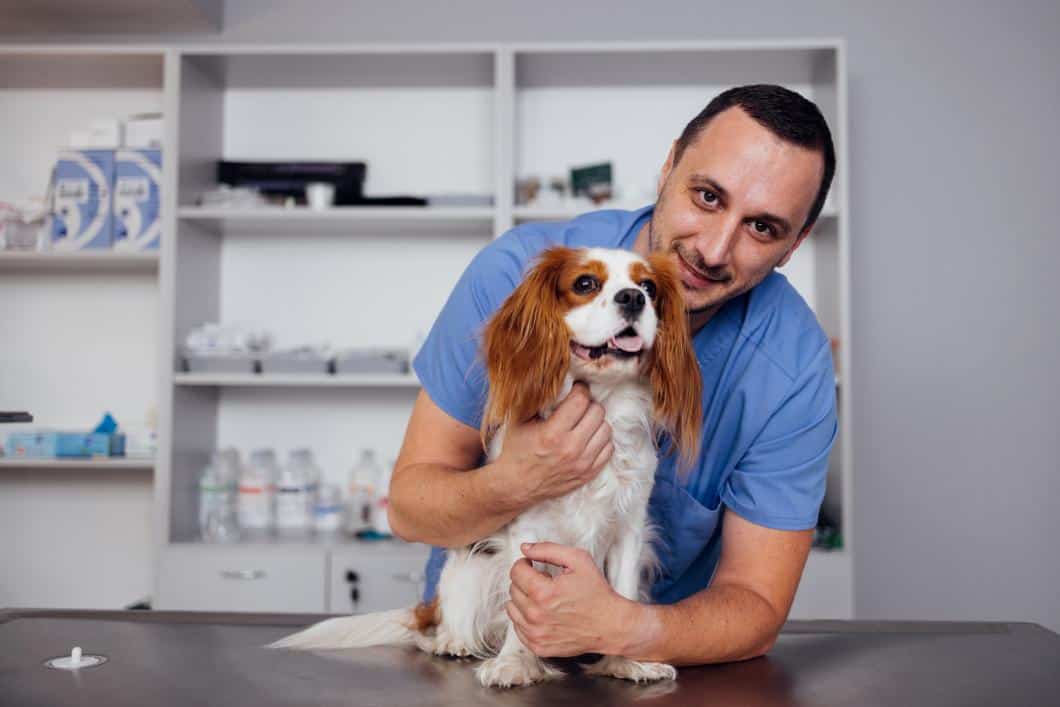
As our beloved pets grow older, their health care needs change significantly. At Adobe Animal Hospital & Laser Surgery Center, we understand the importance of providing specialized senior pet care to ensure your aging pets live healthy, happy lives. Regular veterinary check-ups are essential for maintaining the well-being of your senior pet and detecting potential health issues early on.
Understanding the Importance of Senior Pet Care
Aging pets, much like aging humans, require more attentive health care. Senior pets are more susceptible to health issues such as arthritis, dental problems, diabetes, and kidney disease.
Regular veterinary check-ups allow for the early detection and management of these conditions, improving your pet’s quality of life. By scheduling consistent visits, you can ensure your pet receives the best health care tailored to their needs.
Benefits of Regular Veterinary Check-Ups for Senior Pets
Regular check-ups offer many advantages, ensuring your senior pet stays as healthy as possible. Here are some key benefits:
Early Detection of Health Issues
Regular check-ups allow your veterinarian to conduct comprehensive examinations and spot early signs of diseases. Early detection means prompt treatment, which can significantly improve outcomes and prolong your pet’s life.
Customized Health Care Plans for Senior Pets
Each pet is unique, and their health care should reflect that. During check-ups, veterinarians can develop customized health care plans that address the specific needs of your senior pet. These plans may include dietary recommendations, exercise plans, and medication schedules to keep your pet in optimal health.
Monitoring Chronic Conditions
Senior pets often suffer from chronic conditions that require ongoing management. Regular veterinary visits allow for continuous monitoring and adjustment of treatment plans, ensuring that your pet remains comfortable and their condition is well-managed.
Key Components of a Senior Pet Check-Up
A comprehensive senior pet check-up involves several essential components to ensure thorough health assessment and care:
Comprehensive Physical Examination
A thorough physical exam is crucial for assessing your pet’s overall health. The veterinarian will check for signs of arthritis, dental health issues, and other common age-related problems.
Blood and Urine Tests
These tests are essential for detecting underlying conditions that may not be evident during a physical examination. Blood and urine tests can reveal issues such as kidney disease, diabetes, and infections.
Dental Care
Dental health is a significant concern for senior pets. Regular dental check-ups and cleanings help prevent periodontal disease, which can lead to severe health issues if left untreated.
Nutritional Counseling
As pets age, their nutritional requirements change. Your veterinarians can recommend the best diet to support your senior pet’s health, considering their specific needs and any existing health conditions.
Tips for Maintaining Your Senior Pet’s Health Between Check-Ups
- Provide a Balanced Diet: Make sure your pet’s diet meets their nutritional needs and supports their overall health.
- Encourage Regular Exercise: Keep your pet active with gentle exercise suitable for their age and physical condition.
- Monitor for Changes: Pay close attention to any changes in your pet’s behavior, appetite, or weight, and report these to your veterinarian.
- Maintain Dental Hygiene: Brush your pet’s teeth regularly and provide dental treats to help maintain oral health.
- Provide a Comfortable Place to Rest: Make sure your pet has a comfortable and supportive bed to alleviate any joint pain or discomfort.
Wellness Care for a Long, Healthy Life at Your Side
Dr. Harry and our staff are dedicated to providing comprehensive and compassionate care tailored to the unique needs of aging pets. By prioritizing regular veterinary visits and following veterinary advice for older pets, you can help your beloved companion enjoy their golden years with optimal health and comfort.
Schedule a wellness visit today to ensure your senior pet receives the best care. Contact us online or call our office to make an appointment.
The post Why Regular Veterinary Check-Ups Are Crucial for Your Senior Pet’s Health appeared first on Adobe Animal Hospital & Laser Surgery Center.
]]>The post Keeping Your Pets Cool and Safe During the Dog Days of Summer appeared first on Adobe Animal Hospital & Laser Surgery Center.
]]>
The temperatures are high, the sun is shining, and it is peak time to have fun outdoors with your pet. In the dog days of summer, though, keeping pets cool is key. Adobe Animal Hospital has some top veterinary advice for the summer heat to help you and your pets enjoy it without issue.
Summer Pet Care
With the warm weather comes some special summer pet care considerations. While proactive pet care is important no matter the time of the year, during this time we need to pay special attention to:
- Parasite prevention: Higher temperatures means more activity from things like mosquitoes, fleas, and ticks. Ask us about how you can best protect your pet.
- Grooming habits: A well-groomed coat can help keep pets cooler. Never shave down a double-coated pet as their undercoat can help insulate against heat and protect them from the sun’s rays. Rather, a clean and mat-free coat is the way to go! Also be sure to rinse down your pet with clean water after a dip in the pool, lake, or the ocean, and clean ears with a drying cleanser after water exposure.
- Sun exposure: Pets can get sunburned just like we can. Keep them out of direct sunlight—especially during the most intense parts of the day. Consider a pet-safe sunscreen for pets with light or short coats and less pigment in vulnerable areas like the ears and nose. UV protective pet clothing can also be helpful.
- Other critters: If you and your pet are more active, you can bet that other critters are as well. In particular, be cautious of snakes and other reptiles who may be sunning themselves in the sunshine. It is wise to be sure that your pet is up to date on wellness care and vaccines in case of an encounter with wild animals or other pets.
Heat Stroke in Pets
Pets who become overheated may develop heat stroke, a life threatening condition that occurs when body temperatures remain too high for too long. Without intervention, these increased temperatures can lead to shock, organ failure, seizures, and even death.
Any animal is at risk, but in particular, those who cannot cool themselves as efficiently may overheat easier. This includes any brachycephalic breed like bulldogs, pugs, and boxers, but also very young animals, senior animals, and those with existing heart or breathing conditions.
In the early stages, heat stroke in pets often looks like excessive panting, drooling, lethargy, and possibly vomiting or diarrhea. If you suspect your pet may be overheating, move them to a cool area and contact us right away. Heat stroke in pets is an emergency.
Tips for Keeping Pets Cool
Keeping your pet cool in the summer months is key, as heat stroke is a serious problem that should be avoided at all costs. Make sure that the summer months are safe and fun by:
- Keeping your pets indoors during the hottest part of the day
- Making sure your pet has enough to drink with our best pet hydration tips. These include: being sure fresh, cool water is available at all times, and upping water intake with canned food or frozen treats like a frozen Kong or flavored ice cubes
- Providing access to a cool shelter at all times
- Keeping your pets off hot surfaces like pavement and sand
- Never leaving a pet unattended in a vehicle
- Busting out the misters and lawn sprinklers
- Providing a wading pool (just be sure to always supervise pets around water)
No matter how you choose to spend your summer, make sure that your pets are safe and cool by taking some extra precautions. We love to see you, but we would rather it not be for an emergency!
The post Keeping Your Pets Cool and Safe During the Dog Days of Summer appeared first on Adobe Animal Hospital & Laser Surgery Center.
]]>The post Ultimate Guide to Summer Pet Care: Tips from Our Animal Hospital Experts appeared first on Adobe Animal Hospital & Laser Surgery Center.
]]>
Summer is a time for fun in the sun, but it’s also important to remember that hot weather can pose a significant health risk to our furry companions. At Adobe Animal Hospital & Laser Surgery Center, we want to help you ensure your pet has a safe and happy summer.
In this blog post, our animal hospital experts will share advice for pet owners on essential summer safety guidelines, pet hydration tips during outdoor adventures, and heatstroke prevention in pets.
Keeping Your Pet Cool and Hydrated
Heatstroke is a serious threat to pets during hot summer months. Here are some tips to prevent heatstroke in pets and keep them hydrated:
- Provide ample fresh, clean water at all times. Refresh their water bowl throughout the day, especially after exercise or playtime. You can also add ice cubes to their water to keep it cooler for longer.
- Limit walks and playtime to cooler hours of the day. Early mornings and evenings are the best times for outdoor activities.
- Never leave your pet unattended in a parked car, even for a short period. The temperature inside a vehicle can rise rapidly, even on a mild day, putting your pet at risk of heatstroke.
- Create cool spaces for your pet to relax indoors. This could be a shaded area in your house or a basement. Consider using a cooling mat or fan to help your pet stay comfortable.
Safe Summer Activities for Dogs
Summer is a great time to bond with your dog over outdoor activities. Here are some tips for keeping your dog safe during summer outings:
- Choose dog-friendly activities. Swimming, hiking on shaded trails, and playing fetch in a cool park are great options.
- Avoid hot asphalt. The pavement can get scorching on hot days and burn your dog’s paws. Opt for grassy areas or invest in dog booties for walks during peak sun hours to protect your pet’s paws from hot surfaces.
- Bring fresh water and a portable bowl on all outings. Take frequent breaks to allow your dog to drink and cool down for optimal pet hydration during summer.
Recognizing the Signs of Heat Exhaustion in Pets
Knowing the signs of heatstroke can help you identify a potential emergency quickly. Here are some things to watch for as part of your emergency pet care in summer:
- Excessive panting or drooling
- Lethargy or weakness
- Vomiting or diarrhea
- Stumbling or incoordination
- Seizures
If you suspect your pet is suffering from heatstroke, seek immediate veterinary care.
Additional Summer Pet Safety Tips
Here are some additional tips to protect your pets from summer hazards:
- Apply sunscreen to pets with light fur or hairless skin. Talk to your veterinarian about a pet-safe sunscreen for areas like the ears, nose, and around the lips to prevent sunburn.
- Beware of harmful summer pests. Fleas, ticks, and mosquitos can become more prevalent in summer. Talk to your veterinarian about year-round pet parasite prevention.
- Keep your pet’s identification tags up-to-date. If your pet gets lost during an outing, an ID tag is the best way to ensure they are returned to you safely during this time of increased risk.
Schedule an Appointment with Adobe Animal Hospital Today!
At Adobe Animal Hospital & Laser Surgery Center, our staff is committed to pet health during summer and well-being throughout the year. If you have any questions about protecting your pets from summer hazards or would like to schedule a wellness exam for your pet, contact us today! Call us or conveniently schedule an appointment online.
The post Ultimate Guide to Summer Pet Care: Tips from Our Animal Hospital Experts appeared first on Adobe Animal Hospital & Laser Surgery Center.
]]>